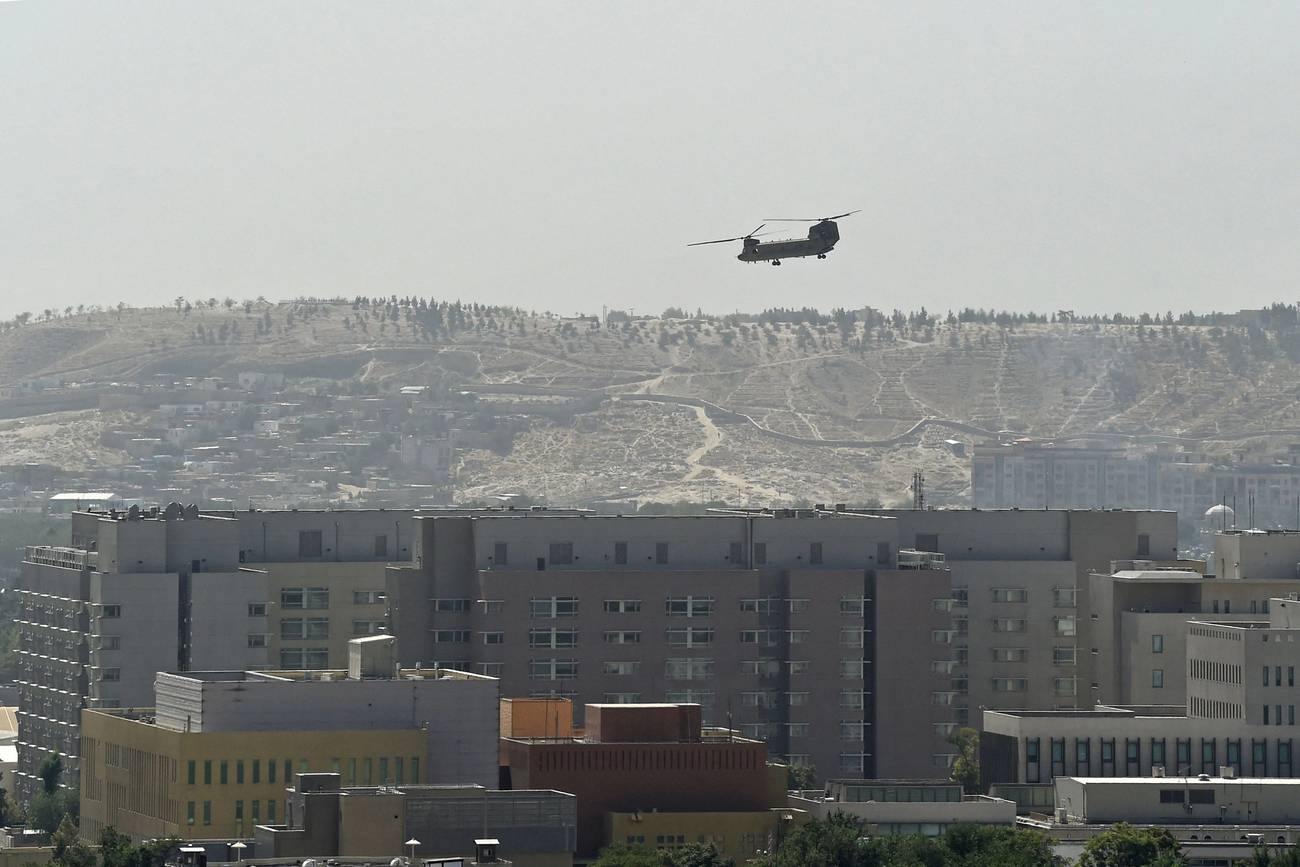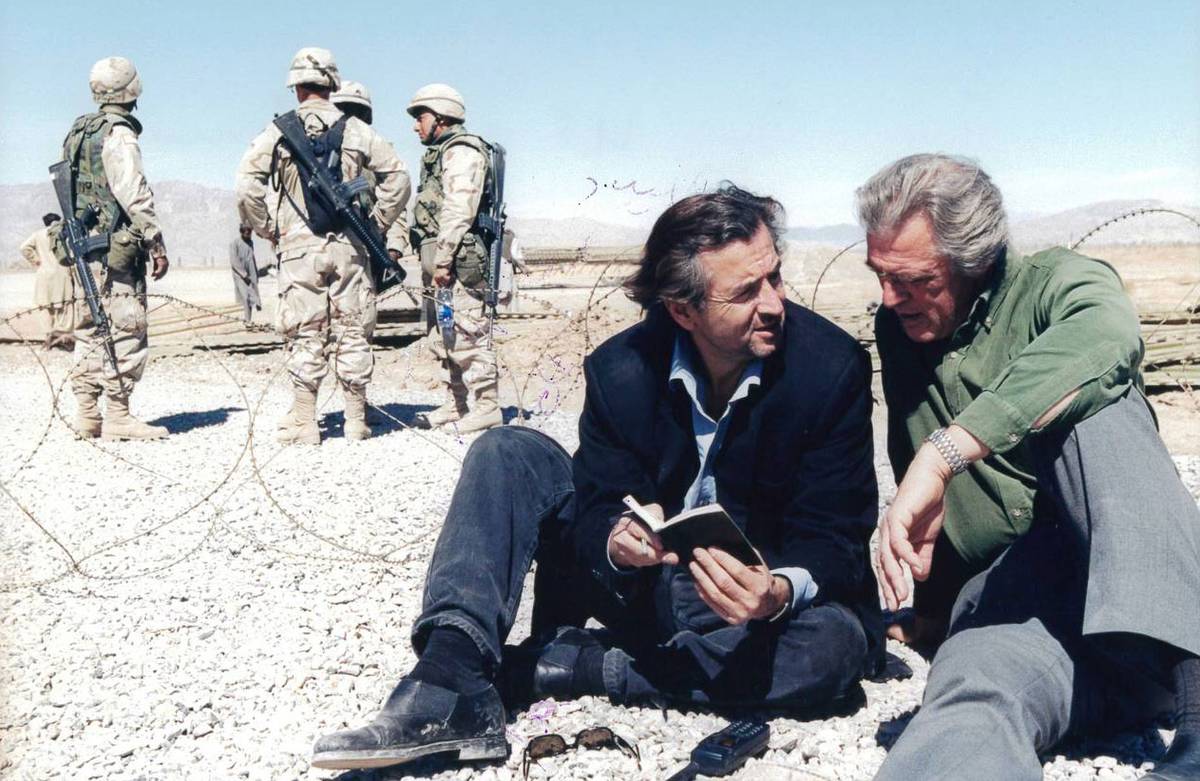Cut and Run
Why are we leaving Afghans to die, when we can help them fight?



Will tomorrow’s Kabul be a replay of Sarajevo in 1992-95? Of Phnom Penh in 1975?
Not only is the West washing its hands of Afghanistan—pulling out with its head down and at the pace of a forced march—but, so as not to find itself bearing all the blame for this prescription-strength defeat, it is discouraging the Afghans by denying them, in advance, the capacity for moral, political, or military resistance.
“The unstoppable advance of the Taliban,” screams the press with sinister glee. “Kabul is being evacuated!” It’s every man for himself, we hear. Yet every night the entire city, with women at the forefront, bang on their pots and pans to encourage resistance. And the Afghan army, surrounded in Kunduz (which an imminent counteroffensive may retake), is containing the Taliban in Herat, Kandahar, and elsewhere.
But never mind all that. The matter is settled. Let’s get our nationals out, every one of them, including aid workers. Let’s grant a handful of visas to our most faithful Afghan allies. Never mind if our pitiful retreat encourages the Westernized elites in Kabul to follow us out, to flee and leave the people leaderless. In short, long live defeatism! And the poor Afghans are requested not to show themselves more determined than their scattering mentors. The contrast might not look good.
This spectacle is doubly shameful.
First, the departure of the Western soldiers and civilians echoes like a death sentence from which there is no appeal. Yet in a Kabul said to be about to fall without a shot fired, their continued presence would protect Afghans from the exactions and retributions the Taliban has promised. It is Saigon 1975 in miniature. That is what is playing out right now under our eyes but sotto voce.
The poor Afghans are requested not to show themselves more determined than their scattering mentors.
Second, instead of bolstering the Afghans’ spirit of resistance, we are implying the cessation (“soon”) of American air strikes carried out from outside Afghanistan on Taliban positions, and the end of the protection of the Kabul airport. We have suddenly forgotten about Panjshir and the young Massoud at the head of his force of formerly vaunted mujahideen, now left to their solitude. We have forgotten the Shi’ite Hazaras, condemned to eradication. We point to the corruption that undermines the Afghan regime, as if this were a new discovery. We hold up the desertion to Tajikistan of surrounded Afghan soldiers or the surrender of remote outposts said to have given up without a fight. The picture presented is one of generalized resignation and treason.
This desolate image distorts reality for our convenience. The victory of the Taliban is not foreordained. The Afghan armed forces exist; the test has not yet occurred. Taking cities mounted on motorbikes is a far different thing from occupying and holding Afghanistan’s hidden valleys. Whatever else they may be, the Taliban are not redoubtable fighters, and they are in no way a field army. They have no armored vehicles, no heavy artillery, no air force. But never mind. They’re going to win, it’s inevitable, we chant to ourselves in every key and register, as if nothing stood in their way and delivering up Afghanistan in a decidedly unvaliant last stand were the only issue at hand.

With Americans in the fore (whether led by Donald Trump or Joe Biden), we have dropped an entire people. So let’s at least give the Afghans a chance to defend themselves by offering air support, continuing to supply weapons and intelligence, and facilitating the operational capacity of their armed forces. The Afghan people, after 20 years of being open to the world, reject the hell promised by the Taliban. By encouraging them—and by retaining a minimal international presence in Kabul—let us bet that their mobilization in the face of danger is in progress, because there is no other choice. The defenders of Kabul number tens of thousands of seasoned soldiers holding their positions. The city can be defended. With the support of the people, their defenders, the heirs to Commander Massoud, can confront the urbicidal barbarians in the manner of the glorious defenders of Sarajevo. The alternative? Remember Phnom Penh?
Unless we can believe in that mission and call off the desertion of the international community before it becomes total, we will have one more act of abandonment to our discredit. Under the diverted eyes of the West, Kabul will suffer the fate of Grozny, Homs, and all the Carthages ancient and moderns handed over to the bloodthirsty vengeance of the conquerors.
Translated from the French by Steven B. Kennedy.
Gilles Hertzog, born in 1948, is a French writer and a human rights activist alongside Bernard-Henri Lévy for 40 years. His latest book, Le dernier Vénitien, was published in 2018.